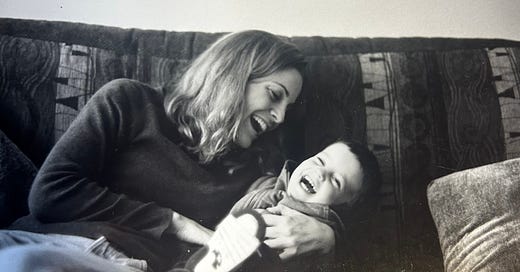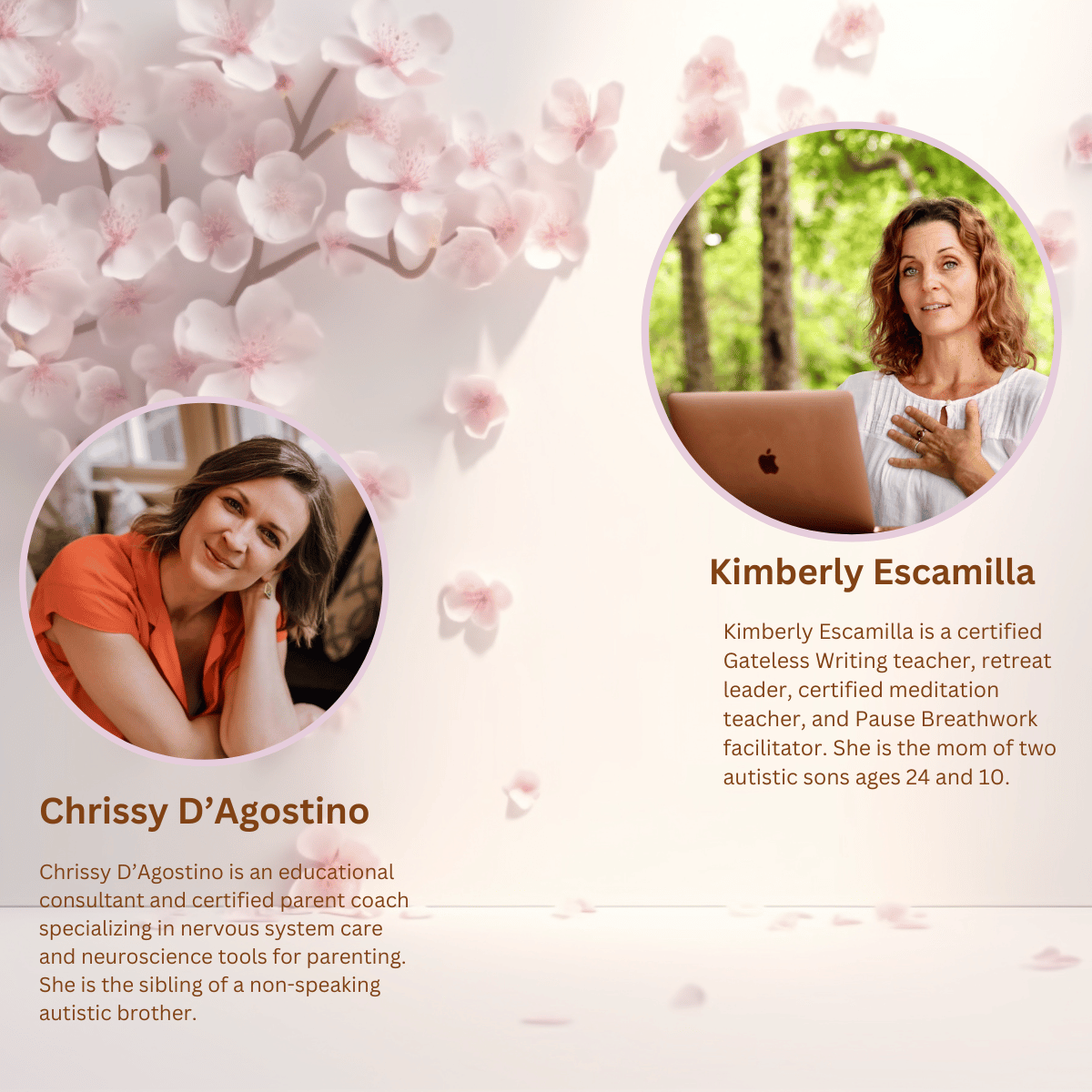Anger & Victimhood
Third in a series on processing a child's autism diagnosis; Free Parenting Workshop
The Quest blood draw office was smaller than I had hoped. Most of the gray chairs were filled and they were squeezed arm to arm, touching around the perimeter with only a coffee table in the middle covered in magazines. Zero toys. Bad fluorescent lighting. My only positive thought was that I had an appointment so the wait shouldn’t be long.
“Please fill out this form front and back, return it, and we’ll call his name for his blood draw.”
I knew this appointment was going to require Harrison, almost three years old, to be held down against his will. Something I could not bear, but necessary all the same. My body was tense with the impending struggle and terrible screams.
I put a blanket on the floor, pulled out the Mozart cube and a blue car Harrison liked, handed him a sippy cup and started writing as fast as I possibly could. He ignored the cup and toys, which were youngish for the typical three year old but his favorites, and he went directly for the magazines, trying to rip them. All eyes just stared at my efforts to put the magazines out of reach on a corner shelf. Finally, one pregnant woman with shiny black hair, red mainicured fingernails and tattoos on her hands, got Harrison’s attention, pressing his Mozart cube.
“Beeya, beeya, beeya, woo, woo, woo, beeya, beeya, beeya,” his voice and the tinny flute sound broke the waitroom’s silence.
These vocalizations were Harrison’s only approximation to words, but I knew they were happy ones.
I smiled at the pregnant woman, returning to my seat next to hers and felt that unspoked support women give each other.
“Thanks so much.”
I returned to the paperwork, grateful I had memorized his SSI number and so many other facts so that I didn’t have to dig in my purse for even a minute.
A sunglassed woman on her cellphone and her pink skinned five year old son entered the waitroom and took the last two open seats across from us. She never paused her stream of conversation even when the receptionist was giving her paperwork and instructions.
The little boy shuffled towards us, studying Harrison and his “beeya, beeya, woo woo” sounds and approached me.
“Hey, is he a monkey or a boy?”
“Excuse me.”
“Is he a monkey or a boy? He looks like a boy, but he sounds and acts like a monkey.”
I looked up towards his mother who was still talking loudly on her phone as if she were in an office in San Francisco making a deal, not in a waitroom with her child.
For a flash, I felt my thoughts, imagining my hand stinging after slapping this child across the face. I envisioned his mother’s eyes getting big, and Harrison crying out or squealing with laughter.
“No, he’s not a monkey, he’s a boy,” I seethed.
“Why is he like that?”
Her red fingernails simply touched the top of my hand, in a reassuring way. She rose, approached the woman on the cellphone, speaking in hushed tones.
“Harrison Mahler,” the receptionist announced.
I scooped up Harrison, pushing myself forward to the next room that wasn’t made for us.
Why Anger Persists
After the shock and denial phases of Harrison’s diagnosis, I swam in this swamp of anger and self pity for years. This phase actually overlapped others as it was so persistent. Hard things kept happening at such a rate, I couldn’t catch my breath and get perspective. In just a few years, I had to delay going into a MFA program, I was a single parent, we stopped getting invites from friends & family, I was pressured to move out of an apartment because of his yelling & jumping. I moved repeatedly to find the best school setting for him. Countless 21 year old behaviorists tried to quantify my son’s delays, giving new labels, their promising reward charts. I thought I was navigating these challenges quite well, until a trigger would occur, and then all bets were off.
Anger and self pity (or overly identifying as a victim) were two sides of the same coin for me. For me this phase was the most toxic as I couldn’t show up for Harrison fully when I was using alcohol, overworking, or escaping into relationships to numb emotions and distract myself.
I felt I was a righteous victim and looked for a home that would hold this view. To identify as a victim wholly is a visceral experience. When I was in this phase, I was the most unconscious and felt a physical heaviness through my limbs. I was blinded by my own pain that I often couldn’t see what a fabulous kid I had.
These poems that were written around this time capture that phase.
Head Games
Though they are sometimes pickled
or pink models—quartered and labeled,
the bloodless organ baffles. Cerebellum
sounds like a secret on the tongue.
Scans can now match activity: red, inaction
blue, fear. They fashion useable skulls
out of plaster. Studies are flaunted and dumped
weekly, like high school crushes.
Theories will not quiet or mold him.
Mirror neurons, mercury, too much TV.
no cause, no cure, no harm, no foul.
I want to know my son’s brain, the way
a woman knows herself on the inside.
Crack it open to see that wet bouquet?
Yes, check the box, mail my head
to Harvard in an ice chest.
Mute
Here’s a third-person chant reserved for infants.
Mama’s taking you to the store.
If I could slap it out of him I would.
If there were a pill, shot, prayer, I’d cut to it.
to pull through the long hours,
I imagine him a reporter or preacher in a former life.
To root it out, I’d commit the brutal act.
Money, of course, limbs, of course.
The woman on the bus doesn’t look at her daughter,
doesn’t see the miracle: shaping the high note –cords drawn.
The “why?” the heat, the bus’ roar.
Want to help your nd child? Deal with your Childhood Trauma
Unprocessed childhood traumas can get shaken up with a diagnosis that’s unrelated. Part of my victim mentality was imprinted from growing up in an alcoholic and abusive environment. Despite tons of talk therapy, I hadn’t processed it all. But the other contributor to my identity as a victim was existential. I was coming to grips with how I viewed God and my evangelical Christian upbringing. I felt myself not buying into the idea that anyone who was not a Christian was going to hell. And, I realized I just didn’t believe in hell itself. I knew I didn’t resonate with the idea that God gave me a child with a disability because I was an inherently bad or sinful person (one branch of religion) or that God was either testing my faith or trusted that I could “handle” it (another branch of bologna).
When I was finally able to get out of this phase through writing, yoga and meditation, I’d like to say that I became self-aware and zen about my new identity, but that was not the case. It took time—like years. Regardless of my own walkabouts towards equanimity, if I were to offer support to someone new to this path, I would suggest that becoming aware (you are more than your child’s diagnosis) and practicing self-care and love are some of the ways to move out of this negative, cyclical thinking.
The evidence of my own healing really came when my younger son Lazlo (he’s 10 1/2 now) was also diagnosed with autism--also at 19 months of age. I knew so many families who had one neurodiverse child and neurotypical ones. And with a different father, I just assumed Lazlo would be neurotypical. Did I grieve and go through all of the phases when Lazlo was diagnosed? Yes. However, I never stayed persistently angry or really felt like a victim. I had a supportive partner, and it was known territory for me. When Lazlo was diagnosed, Harrison was 15 years old. So many IEPs, calls to insurance, navigating family, friends, the public and more under my belt. I was so grateful that the visceral grip of anger and victimhood never materialized.
Free Workshop for Parents of Neurodiverse Kids: Nervous System Care
I’m excited to offer this free workshop with my friend and colleague Chrissy D’Agostino on Monday, February 5th at 9am PST/ 12pm EST where we will discuss tools for parents to regulate their nervous systems during those extra challenging moments. Read Chrissy’s bio below (She was also Harrison’s first teacher at The Oakhill School in San Anselmo when he was 9 years old. 💜)
Register Here so we can send you the zoom and welcome you to the event. I’ll also be leading a short breathwork session.







Beautiful writing, Kimberly. Thank you for sharing your journey with us.